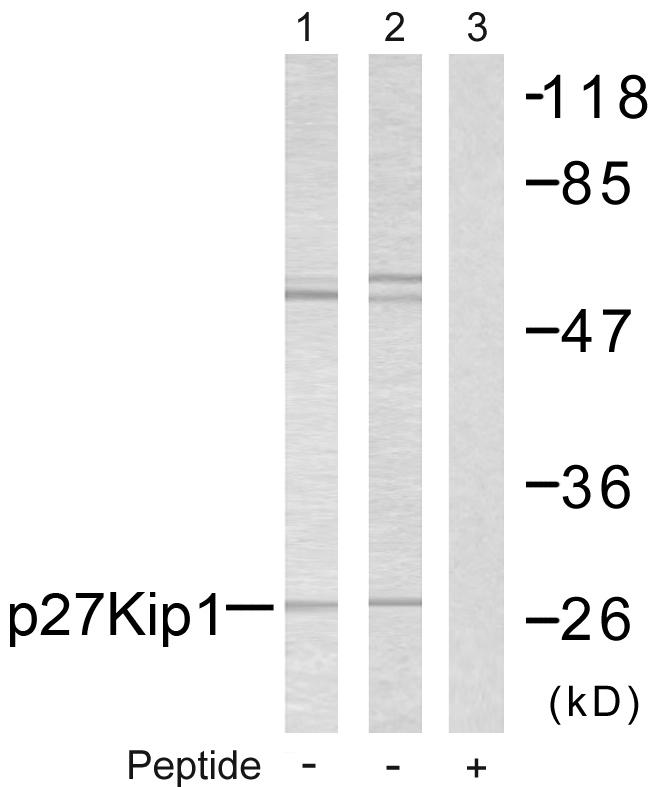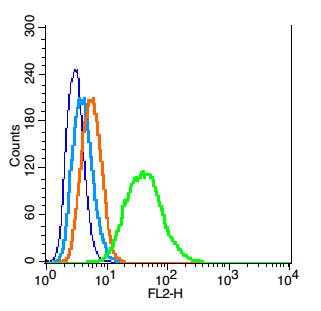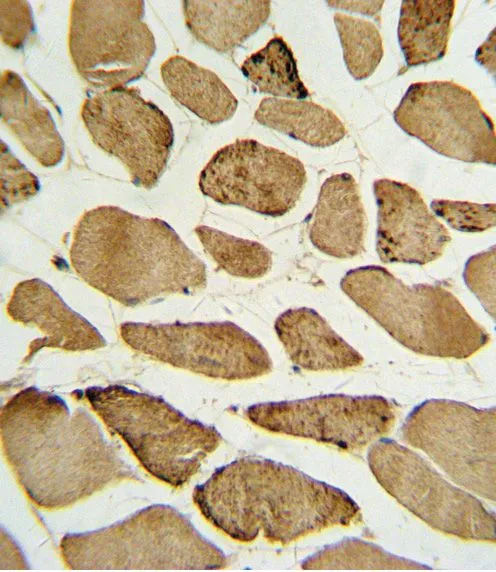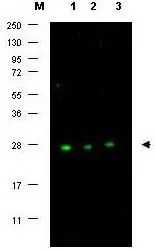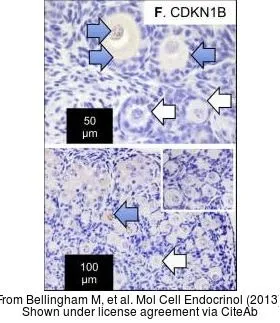
The data was published in the journal Mol Cell Endocrinol in 2013.
p27 Kip1 antibody
GTX27961
ApplicationsImmunoPrecipitation, Western Blot, ImmunoHistoChemistry
Product group Antibodies
ReactivityHuman, Mouse, Rat, Sheep
TargetCDKN1B
Overview
- SupplierGeneTex
- Product Namep27 Kip1 antibody
- Delivery Days Customer9
- Application Supplier NoteWB: 1:200. *Optimal dilutions/concentrations should be determined by the researcher.Not tested in other applications.
- ApplicationsImmunoPrecipitation, Western Blot, ImmunoHistoChemistry
- CertificationResearch Use Only
- ClonalityPolyclonal
- Concentration0.2 mg/ml
- ConjugateUnconjugated
- Gene ID1027
- Target nameCDKN1B
- Target descriptioncyclin dependent kinase inhibitor 1B
- Target synonymsCDKN4, KIP1, MEN1B, MEN4, P27KIP1, cyclin-dependent kinase inhibitor 1B, cyclin-dependent kinase inhibitor 1B (p27, Kip1)
- HostRabbit
- IsotypeIgG
- Protein IDP46527
- Protein NameCyclin-dependent kinase inhibitor 1B
- Scientific DescriptionThis gene encodes a cyclin-dependent kinase inhibitor, which shares a limited similarity with CDK inhibitor CDKN1A/p21. The encoded protein binds to and prevents the activation of cyclin E-CDK2 or cyclin D-CDK4 complexes, and thus controls the cell cycle progression at G1. The degradation of this protein, which is triggered by its CDK dependent phosphorylation and subsequent ubiquitination by SCF complexes, is required for the cellular transition from quiescence to the proliferative state. Mutations in this gene are associated with multiple endocrine neoplasia type IV (MEN4). [provided by RefSeq, Apr 2014]
- ReactivityHuman, Mouse, Rat, Sheep
- Storage Instruction2°C to 8°C
- UNSPSC41116161
References
- Design of ion channel blocking, toxin-like Kunitz inhibitor peptides from the tapeworm, Echinococcus granulosus, with potential anti-cancer activity.Read this paper
- Exposure to chemical cocktails before or after conception--- the effect of timing on ovarian development. Bellingham M et al., 2013 Aug 25, Mol Cell EndocrinolRead this paper
- Progesterone receptor is involved in 2,3,7,8-tetrachlorodibenzo-p-dioxin-stimulated breast cancer cells proliferation. Chen YJ et al., 2012 Jun 28, Cancer LettRead this paper

